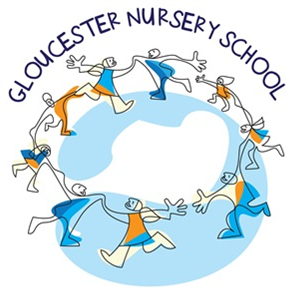Our Learning - EYFS
What is the Early Years Foundation Stage?
This is a very important stage as it helps your child get ready for school as well as preparing them for their future learning and successes. From when your child is born up until the age of 5, their early years experience should be happy, active, exciting, fun and secure; and support their development, care and learning needs.
The Early Years Foundation Stage sets out:
- The legal welfare requirements that everyone registered to look after children must follow to keep your child safe and promote their welfare
- The 7 areas of learning and development which guide professionals’ engagement with your child’s play and activities as they learn new skills and knowledge
- Assessments that will tell you about your child’s progress through the EYFS
- Expected levels that your child should reach at age 5, usually the end of the reception year; these expectations are called the “Early Learning Goals (ELGs)”
There is also guidance for the professionals supporting your child on planning the learning activities, and observing and assessing what and how your child is learning and developing.
The EYFS Framework explains how and what your child will be learning to support their healthy development.
Your child will be learning skills, acquiring new knowledge and demonstrating their understanding through 7 areas of learning and development.
Children should mostly develop the 3 prime areas first. These are:
- Communication and language;
- Physical development; and
- Personal, social and emotional development.
These prime areas are those most essential for your child’s healthy development and future learning.
As children grow, the prime areas will help them to develop skills in 4 specific areas. These are:
- Literacy;
- Mathematics;
- Understanding the world; and
- Expressive arts and design.
These 7 areas are used to plan your child’s learning and activities. The professionals teaching and supporting your child will make sure that the activities are suited to your child’s individual needs. This is a little bit like a curriculum in primary and secondary schools, but it's suitable for very young children, and it's designed to be really flexible so that staff can follow your child's unique needs and interests.
Children in the EYFS learn by playing and exploring, being active, and through creative and critical thinking which takes place both indoors and outside.
The following four themes and principles of the EYFS underpin all the guidance:
- every child is a unique child, who is constantly learning and can be resilient, capable, confident and self-assured;
- children learn to be strong and independent through positive relationships;
- children learn and develop well in enabling environments, in which their experiences respond to their individual needs and there is a strong partnership between practitioners and parents and/or carers; and
- children develop and learn in different ways and at different rates.
The framework covers the education and care of all children in our early years provision, including children with special educational needs and disabilities.
There is a strong emphasis on the characteristics of effective learning in the Early Years Foundation Stage:
- Characteristics of Effective Learning
- Playing and exploring – engagement
- Finding out and exploring
- Playing with what they know
- Being willing to ‘have a go’
- Active learning – motivation
- Being involved and concentrating
- Keeping trying
- Enjoying achieving what they set out to do
- Creating and thinking critically – thinking
- Having their own ideas
- Making links
- Choosing ways to do things
You can find out more about the Early Years Foundation Stage which includes the early learning goals at www.foundationyears.org.uk. The foundation years website also includes a range of resources and contacts.
The principles underpin everything in the EYFS:
- A unique child - Every child is a competent learner from birth who can be resilient, capable, confident and self assured;
- Positive Relationships - Children learn to be strong and independent from a base of loving and secure relationships with parents and/or a key person;
- Enabling Environments - The environment plays a key role in supporting and extending children’s development and learning;
- Learning and Development - Children develop and learn in different ways at different rates and all areas of Learning and Development are equally important and interconnected.
"Play underpins the delivery of all of the Early Years Foundation Stage. Children must have opportunities to play indoors and outdoors. Providing well planned experiences based on children’s spontaneous play both indoors and outdoors, is an important way in which practitioners support young children to learn with enjoyment and challenge."
